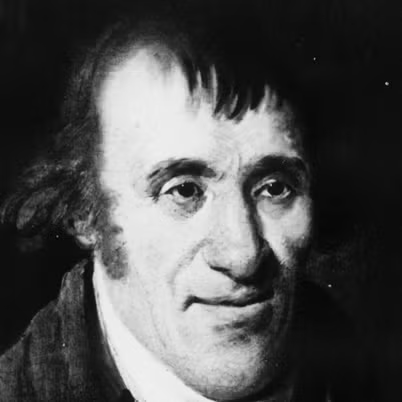
Who Was Ethan Allen?
Ethan Allen was a prominent figure in American history, known for his military leadership during the French and Indian War as well as the American Revolution. He is most notably remembered for his role in leading the Green Mountain Boys, alongside Benedict Arnold, to successfully capture Fort Ticonderoga from British forces in 1775. Following the war, Allen became an advocate for Vermont’s statehood; however, when this effort did not succeed, he proposed that Vermont become part of Canada.
Family Life
Born on January 21, 1738, in Litchfield, Connecticut, Ethan Allen was the first child of Joseph and Mary Baker Allen, who subsequently had five more sons and two daughters. Known for his fiery personality and outspoken nature, Allen married Mary Brownson in 1762, with whom he had five children. Following Mary’s death in 1783, he remarried in 1784 to Fanny, and they had three children together.
Explorer and Military Leader
Although Ethan Allen was born in Connecticut, he and his family explored the land in the New Hampshire Grants. After serving in the French and Indian War, Allen purchased land and settled in what is now Vermont. This region soon became a point of contention, as both New York and New Hampshire claimed ownership of the Champlain Valley.
In 1770, the New York Supreme Court ruled the New Hampshire Grants invalid, prompting Allen and a group of local settlers, later known as the Green Mountain Boys, to take action against what they referred to as “Yorkers.” Allen was elected as their leader, and the group employed various tactics—including intimidation and occasional violence—to assert their claims over the disputed land.
With the advent of the American Revolution, the Green Mountain Boys shifted their focus to the conflict against Great Britain. In 1775, under Allen’s leadership, they captured Fort Ticonderoga with minimal resistance, as it was manned by a small contingent of British soldiers. Following this victory, Allen and his forces continued their campaign by capturing Crown Point, located north of Ticonderoga. However, their attempt to seize Montreal was unsuccessful, resulting in Allen’s capture and subsequent imprisonment in Cornwall, England, for two years.
Later Life
Upon returning to North America, Ethan Allen settled in Vermont, a territory that had declared its independence from both Britain and the United States. He sought to persuade the Continental Congress to recognize Vermont as the fourteenth state. However, due to ongoing territorial disputes among Massachusetts, New Hampshire, and New York, Congress ultimately refused his request.
In light of this setback, Allen engaged in negotiations with Canadian Governor Frederick Haldimand, exploring the possibility of Vermont becoming part of Canada. Had this occurred, Vermont would have rejoined the British Empire. Allen’s involvement in these discussions significantly tarnished his reputation, painting him as impulsive and unreliable.
With his military service concluded and his political and diplomatic credibility in question, Allen retired to his home in present-day Burlington, Vermont, in 1787. During this time, he revisited a manuscript he had begun years earlier with his philosophical companion, Dr. Thomas Young. In 1785, he published Reason the Only Oracle of Man, a work of Deist philosophy that garnered considerable criticism from Christian clergymen. Ethan Allen passed away in Burlington, Vermont, on February 12, 1789. Two years later, Vermont was admitted to the United States.
